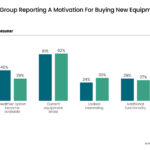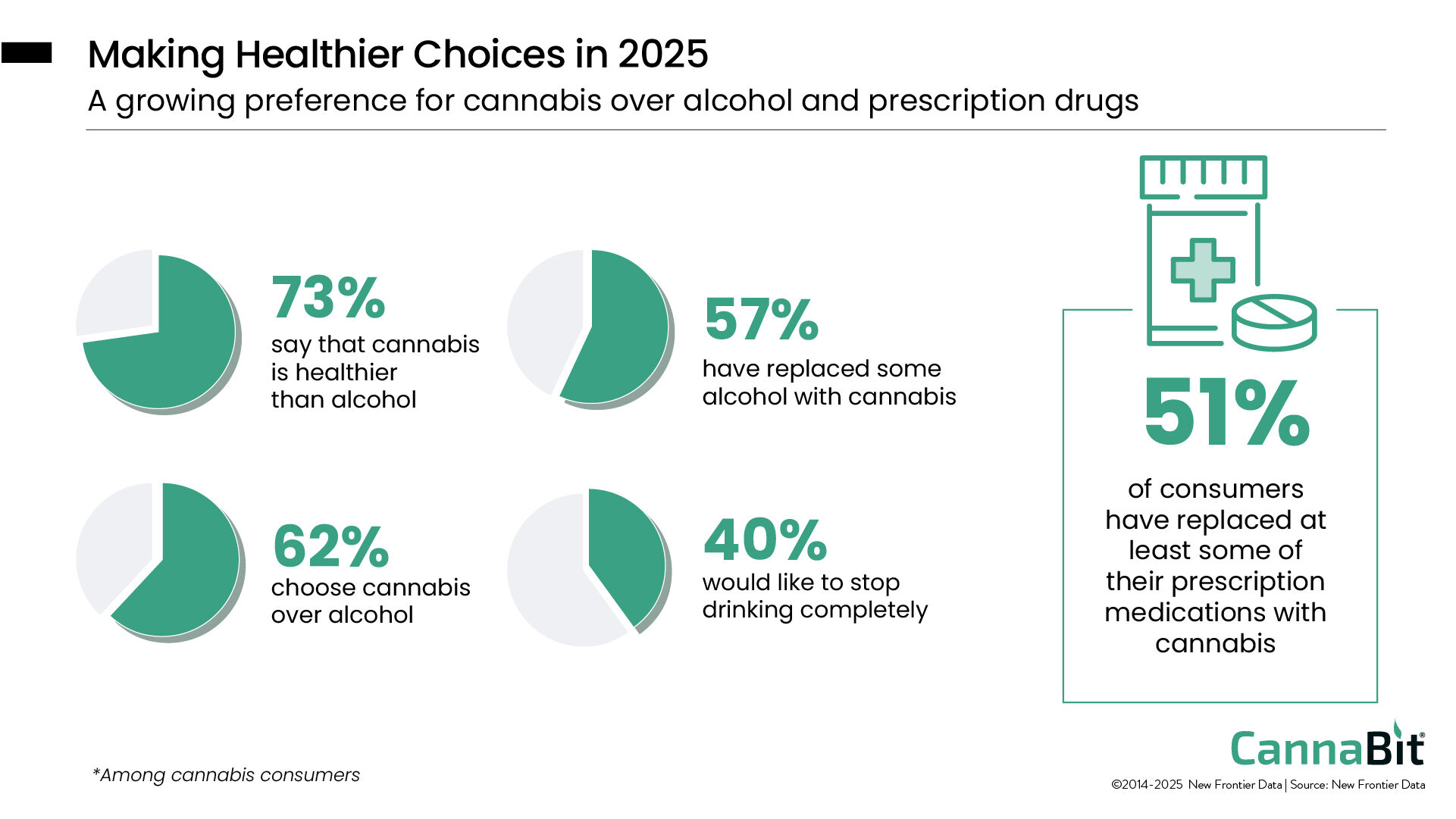Making Healthier Choices in 2025: The rise of cannabis as a substitute for alcohol and opiates

Puff, Puff, Purchase: What Drives Cannabis Gear Decisions?
January 7, 2025
Connecting Consumer Behavior to Industry Action
January 22, 2025When I first became a medical cannabis patient in 2003, I completed a lengthy health questionnaire at the request of my physician, Dr. Frank Lucido. In it were questions that, as a researcher, really piqued my interest. It asked if I was using cannabis as a substitute for alcohol or prescription drugs. While I answered no for alcohol, I realized that, as someone using cannabis for arthritis pain, I was using it as a substitute for prescription drugs. Namely, anti-inflammatories and pain medication. From this, I was motivated to use Dr. Lucido’s questionnaire for a study on cannabis substitution. The findings showed that over 50% of medical cannabis patients reported using it as a substitute for alcohol, and 2/3 as a substitute for prescription drugs. A later study investigated the specific use of cannabis as a substitute for opiates, also finding very high rates of substitution and satisfaction with the efficacy of cannabis in controlling pain. In both studies, the top three reasons given for using cannabis as a substitute were: better symptom relief, less chance of dependence, and fewer side effects.
This was, of course, before the beginning of adult use legalization. Now that many adults in the US enjoy access to legal cannabis, we are starting to see shifts on the population level regarding the use of alcohol and opiates. A study by McCabe et al of young adults between 2002 and 2018, found that alcohol abstinence and cannabis use both increased significantly over this time period.
In addition to a reduction in alcohol use, we also see changes in opiate consumption. A 2018 study by Liang et al found that, among Medicaid recipients, cannabis legalization was significantly associated with a reduction in the prescribing, dosing and Medicaid payment for Schedule III opiates (codeine). And a recent study from the University of Buffalo found that medical cannabis laws were associated with significant reductions in payments from opiate manufacturers to physicians.
The New Frontier Data Consumer Survey also explored the relationship between cannabis and alcohol consumption and the use of cannabis as a substitute for prescription drugs. Sixty-two percent of consumers said that when they have a choice between cannabis and alcohol, they choose cannabis. Fifty-seven percent said that they have replaced some of their drinking with cannabis. Forty percent would like to stop drinking completely. And 73% say that cannabis is healthier than alcohol. Among those who use cannabis for medical purposes, 51% say they have replaced at least some of their prescription medications with cannabis.
The new year is a time when many folks take stock of their lifestyle and commit to an increased focus on healthy behaviors. And, with cannabis more accessible than ever, dispensaries could see an influx of new consumers looking to move away from alcohol and prescription drugs. Understanding the needs of these folks and how to better reach them may make the difference between them walking through your door, or someone else’s .




